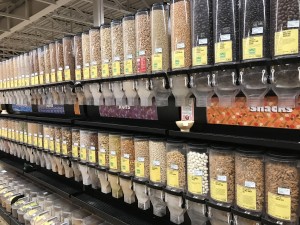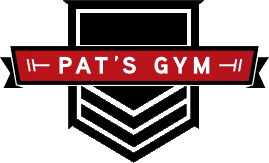 I am constantly getting the question; can I make gains being a vegetarian/vegan and how do I get enough proteins to sustain those gains. Another common question is when should I be eating my protein.
I am constantly getting the question; can I make gains being a vegetarian/vegan and how do I get enough proteins to sustain those gains. Another common question is when should I be eating my protein.
First off, the best sources of proteins come from dairy products, eggs, meat, and fish. Animal protein is complete; it has the right proportions of amino acids your body can’t synthesize on its own. However, with that said, you can build complete proteins from plant-based foods. It takes more planning, however. You have to combine the right legumes, nuts, and grains over the course of a day. You’ll need to consume about 20-25% more plant based protein to repeat the benefits that animal sources provide.
The one good thing about animal proteins – is they are easier to get lean sources of protein than you can get with legumes and nuts. However, I don’t want to mislead you into thinking that the fats you find in nuts, or the carbs you find in legumes will make you fat. Generally, it’s the refined carbs you have to watch out. With legumes, you have to watch out for the quantities you will eat. With fats, you have to make sure you’re eating healthy fats and stay away from the unhealthy fats. Carbs are most likely the problem. Carbs can put you on a blood sugar roller coaster that will make you hungry. I have written Knowledge Posts, which are on the Pat’s Gym website, that describe healthy carbs and healthy fats.
In addition, to figuring out what type of protein you should be taking in, it’s also important to know when to eat it. First, there are two premises you should remember. Number one, even at rest, your body is breaking down and building protein. Second, every time you eat at least 30 grams of protein, you trigger a burst of protein synthesis that lasts about 3 hours.
So, think of this logically; you generally will eat most of your protein at dinner. That means you could be fueling muscle growth for only a few hours a day, and breaking down muscle the rest of the time. Therefore, you should spread out your protein intake throughout the day and avoid a burst at dinner. Your body can process only so much protein in a single sitting. One study has shown that consuming 90 grams of protein at one meal provides the same benefit as eating 30 grams. Most of the remaining 60 grams will turn to fat.
Eating protein at all three meals—plus snacking two or three times a day on proteins such as cheese, jerky, and milk—will help you eat less overall because protein will make you feel full. People who start the day with a protein-rich breakfast consume 200 fewer calories a day than those who eat carb-loaded breakfasts.
I hope these tips help you determine what types of protein sources to eat and when to eat them.
